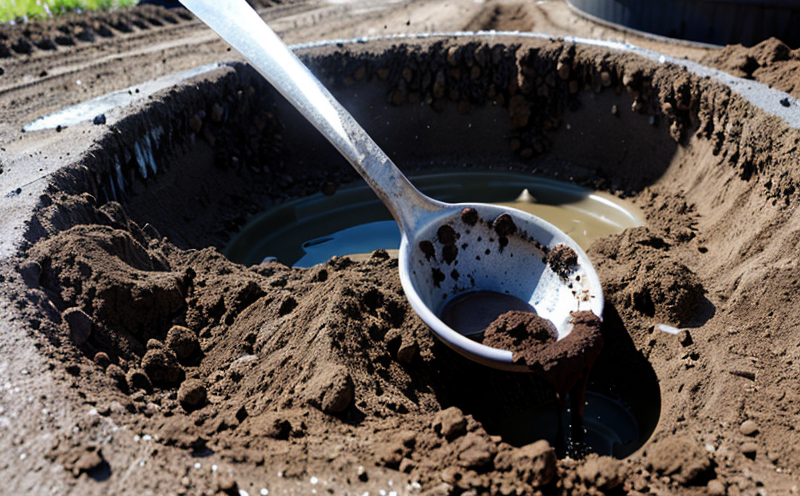OECD 201 Algal Growth Inhibition Bioassay of Sludge Extract Test
The OECD 201 Algal Growth Inhibition Bioassay of Sludge Extract (OECD 201) is a critical bioassay used to assess the toxicity and environmental impact of sludge extracts. This test evaluates whether the extract from biosolids can inhibit algal growth, which reflects potential adverse effects on aquatic ecosystems when released into the environment.
The OECD 201 protocol is standardized according to ISO standards and is widely recognized in various sectors including wastewater treatment, municipal waterworks, and environmental protection. This bioassay is particularly important for regulatory compliance and risk assessment of biosolids used in land application or discharged into water bodies.
To perform the OECD 201 test, sludge extracts are prepared by diluting with deionized water to a specific concentration range. The algal cultures (typically Chlorella vulgaris) are then exposed to these diluted extracts under controlled conditions for a prescribed period of time. Growth inhibition is measured using optical density readings at various points during the assay.
The primary goal is to determine if the extract can inhibit algal growth by 50% or more compared to control samples. This threshold value is critical as it indicates whether the sludge extract could pose a significant risk in terms of bioaccumulation and subsequent transfer up the food chain. The test results are reported in terms of EC50 (effective concentration), which provides a quantitative measure of the toxicity.
The OECD 201 protocol ensures that the test is conducted under controlled conditions to minimize variability, ensuring high reliability and reproducibility. Compliance with this bioassay helps regulatory bodies ensure that biosolids meet environmental standards without causing harm to aquatic ecosystems.
For accurate and reliable testing, it is essential to follow standardized protocols meticulously. Our laboratory uses state-of-the-art equipment including automated incubators and spectrophotometers to perform these tests consistently. This ensures that our results are precise and can be trusted by regulatory agencies and industry stakeholders alike.
The OECD 201 test plays a crucial role in environmental risk assessment, particularly for facilities responsible for wastewater treatment and biosolids management. By understanding the potential impacts of sludge extracts on aquatic organisms, we can inform decisions regarding safe application practices and discharge limits.
Our commitment to excellence extends beyond just following protocols; it also involves continuous improvement through research and development. We stay updated with the latest advancements in bioassay methodologies and collaborate with industry leaders to ensure our services remain at the forefront of environmental testing.
At Eurolab, we pride ourselves on delivering unparalleled quality and reliability in all our services. Our team of experts ensures that every OECD 201 Algal Growth Inhibition Bioassay is conducted with precision and care, adhering strictly to international standards.
- Expertise: Our scientists have extensive experience in environmental testing, ensuring accurate interpretation of results.
- Accreditation: Eurolab holds ISO 17025 accreditation, guaranteeing the highest level of competence and reliability.
- Technology: Equipped with advanced instruments such as automated incubators and high-precision spectrophotometers.
- Consistency: Our protocols are designed to minimize variability, resulting in consistent and repeatable results.
We provide comprehensive support throughout the process, from initial consultation on sample preparation to final reporting. This ensures that our clients receive not only accurate test results but also actionable insights tailored to their specific needs.
Quality and Reliability Assurance
- Standard Compliance: Our laboratory adheres strictly to ISO standards, ensuring reliability in all tests.
- Controlled Environment: We maintain a controlled environment for all assays to minimize external variables affecting results.
- Data Validation: Multiple checks are performed on data collected during the assay to ensure accuracy and validity.
- Documentation: Detailed documentation is maintained throughout each test, providing transparent records of every step taken.
Our robust quality assurance measures not only meet but exceed industry expectations. This dedication to precision and integrity ensures that our clients can trust the results we provide.
Customer Impact and Satisfaction
At Eurolab, customer satisfaction is paramount. By providing accurate, reliable, and timely OECD 201 Algal Growth Inhibition Bioassay services, we help our clients meet regulatory requirements confidently. Our comprehensive support during the testing process ensures that you have all the necessary information to make informed decisions regarding biosolids management.
Our commitment extends beyond just delivering results; it includes offering guidance on best practices for sample preparation and interpretation of findings. This holistic approach helps ensure that our clients are well-equipped to manage biosolids responsibly, contributing positively to environmental health.
We actively seek feedback from our customers to continuously improve our services. Your satisfaction is our priority, and we strive to exceed your expectations at every step of the process.





